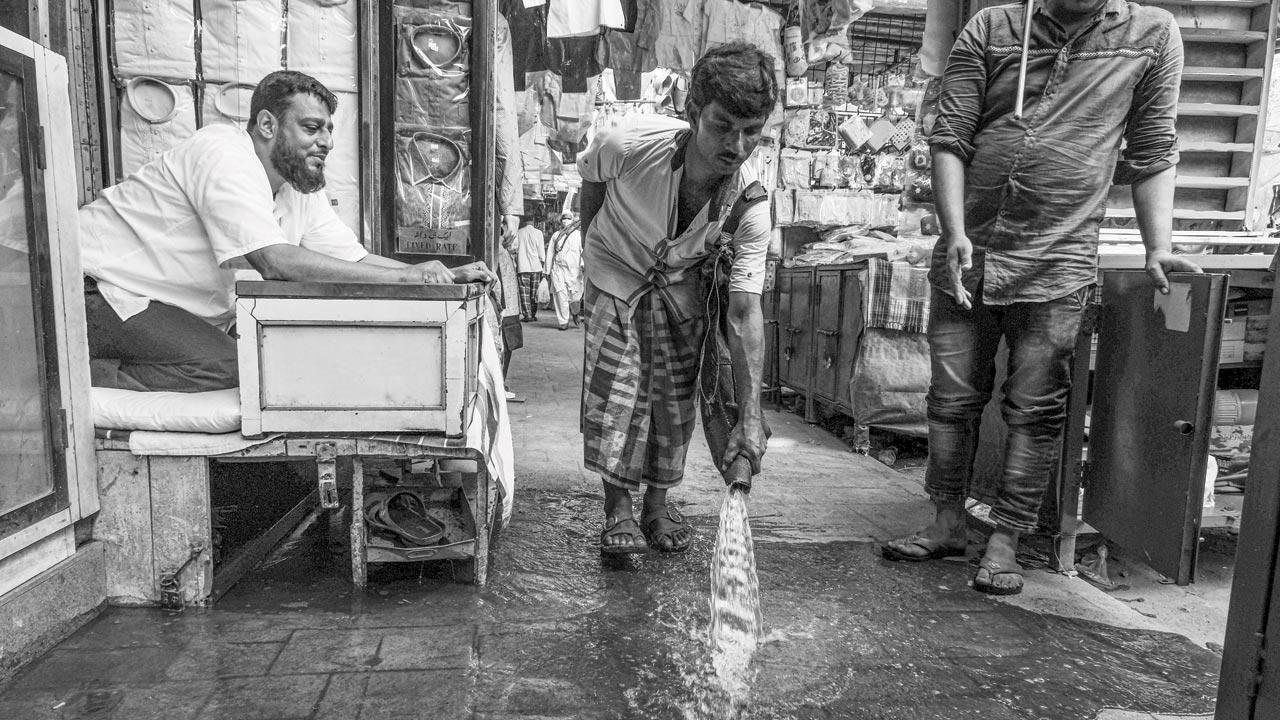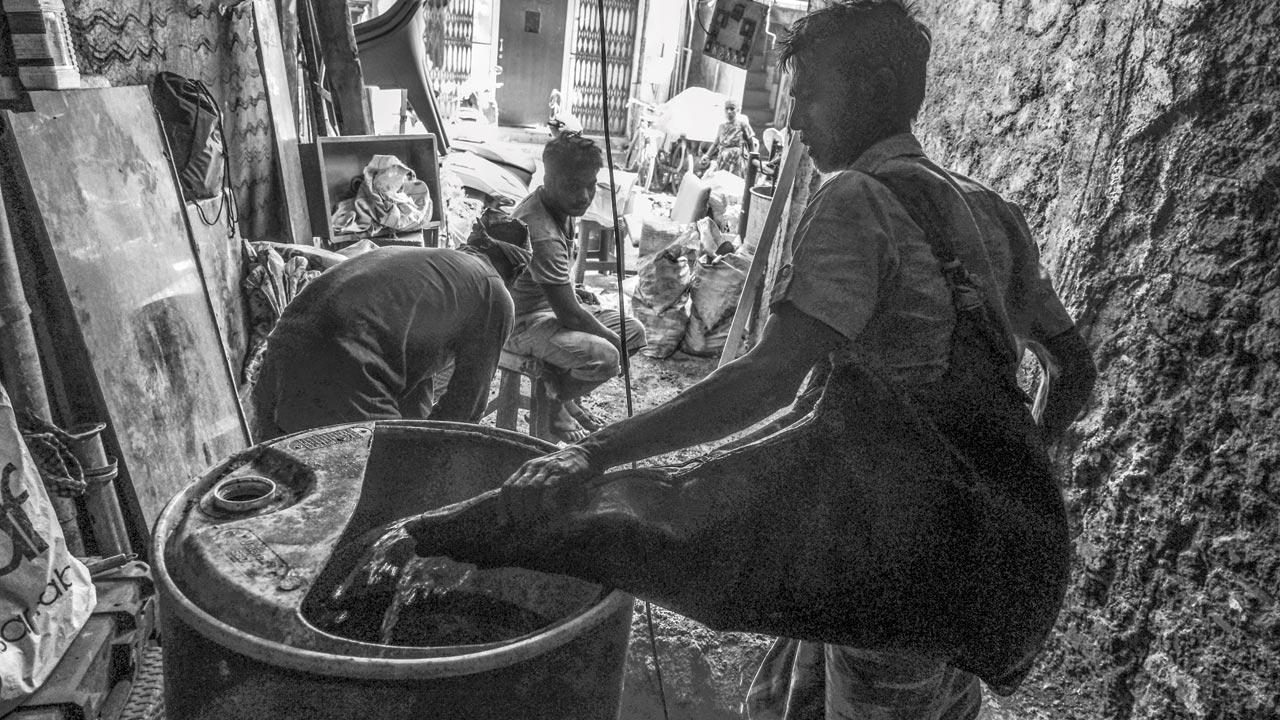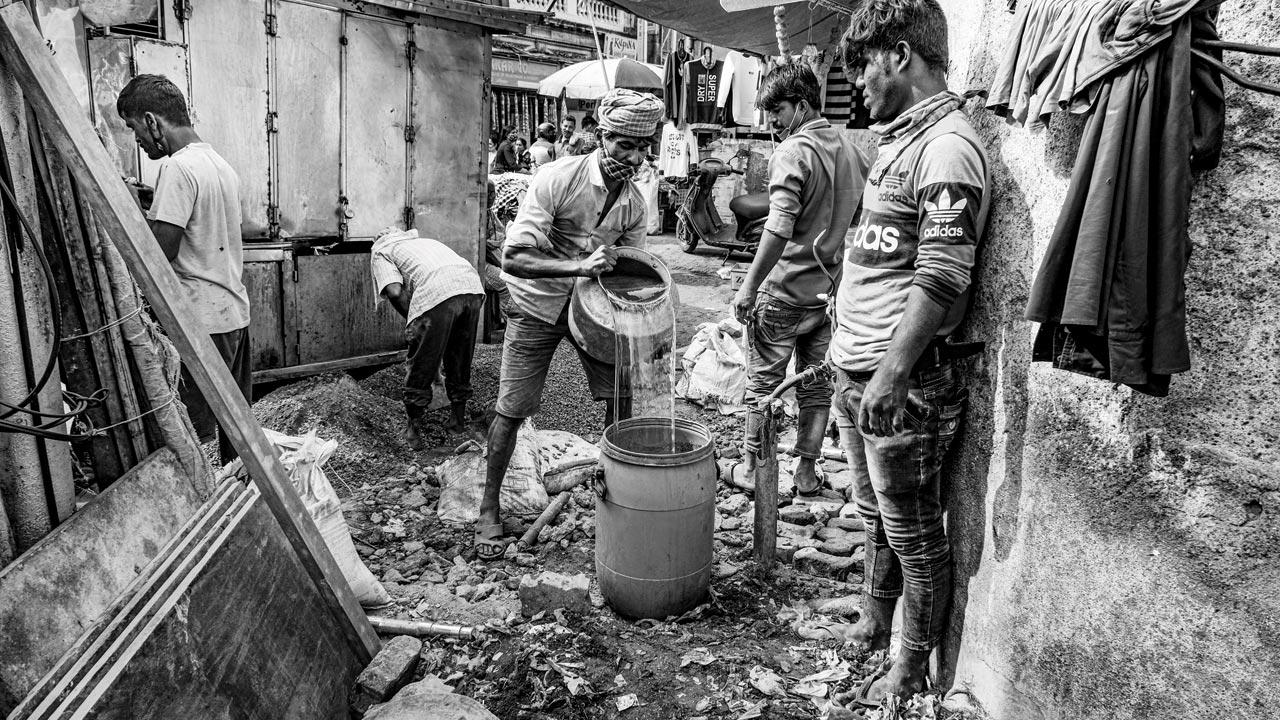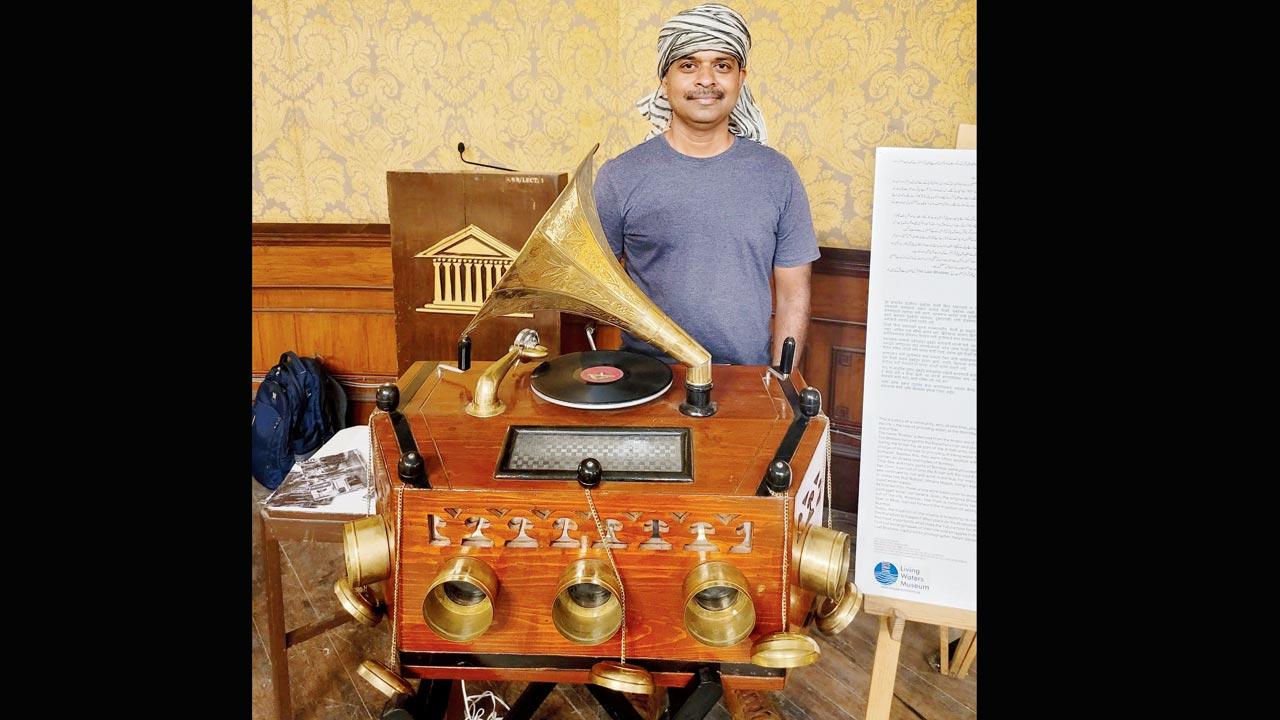An exhibition opens in the city to pay ode to the fast-disappearing water carriers once revered for quenching the thirst of soldiers and travellers

The Bhishtees, members of a Muslim tribe, are believed to have followed the Mughals to India. Carrying the characteristic goat skin mashaq, the last functioning members now provide water to street vendors and pavement dwellers. Pic courtesy/Aslam Saiyad
Upon entering the Durbar Hall at the Asiatic Society, this writer was greeted by a friendly man standing behind a bioscope. For those born in this century, that’s a travelling movie theatre. Taking up one small section of the high-ceiling hall was Aslam Saiyad, enthusiastically winding the bioscope for the few interested enough to turn up for an exhibition on a humid Thursday afternoon.
ADVERTISEMENT
Saiyad is like one of those friendly, talkative strangers you meet on a local train. He jokes about his bioscope to a pair of boys who had never seen one and tells them about his ongoing photography exhibition: The Last Bhishtees of Mumbai.
 The mashaqwalas provided water in mashaqs made out of goatskin. Pics/Aslam Saiyad
The mashaqwalas provided water in mashaqs made out of goatskin. Pics/Aslam Saiyad
Saiyad started as a photographer in 2011. He is an animator by profession, substitutes as visiting faculty for photography and photojournalism, and is also the co-founder of the Hallu Hallu heritage walks undertaken across the city. “Water is my main topic,” he says. “I am always working around water.” His project on Mumbai’s rivers was his first tryst with the subject. That’s how The Living Water Museum—a virtual museum that engages the youth in visualising their water heritage —noticed him in late 2020, and invited him to be part of their 2021 Confluence exhibition.
“I thought of taking up the Bhishtee community because I had seen these people carry the leather bag holding water when I was in college. I was very fascinated by that bag,” says the 43-year-old. The name Bhishti or Bhishtee comes from the Urdu word ‘Bahisht,’ which means ‘Paradise’.
 The pandemic saw the last four mashaqwalas make the switch to steel handas and plastic containers
The pandemic saw the last four mashaqwalas make the switch to steel handas and plastic containers
During colonial rule, the bhishtees played an important role in providing water to the city. With the municipal body giving only a certain amount of water at fixed time periods, it was the bhishtee who came to the doorsteps of homes and shops. They would provide potable water to small gatherings held at home, or sprinkle it in front of the shops to keep down the dust and cool the area.
Their mashaq—a goatskin bag that needed to be repaired every two to three months—gave the water a distinct flavour. While the first bhishtees were originally from Rajasthan, more opportunities drew people from Bihar and Uttar Pradesh.
 Aslam Saiyad’s bioscope helps make this a portable exhibition that he can take to the streets
Aslam Saiyad’s bioscope helps make this a portable exhibition that he can take to the streets
When Saiyad began working on the project in November 2020, only 10 bhishtees used the traditional masahq. The pandemic brought the number down to four. By February 2022, there wasn’t a single mashaqwala in the city. The bhishtees providing water in South Mumbai’s Dongri, Null Bazaar, Minara Masjid, Kalbadevi and Bhendi Bazaar areas have moved on to plastic buckets, containers or even steel handas.
The goatskin mashaq is now no more.
“With the mashaq gone, the craftsmen making and repairing these bags have also disappeared,” says Saiyad. According to him, more water pipelines, the availability of tankers and packaged water elbowed this profession into oblivion.
However, in some parts of the city, where people live, sleep, eat, bathe and ply their trade on the street, the bhishtee is still needed. “If a shopkeeper in such an area wants two buckets of water, s/he will not call a tanker,” points out Saiyad. “They will call the bhishtee. It’s quick and pocket-friendly.”
Bhishtees charge around Rs 10 per bucket, and earn close to Rs 400 at the end of the day. With local markets making way for skyscrapers and malls, there will be little use of them, feels Saiyad. Traditionally, buildings and markets were designed in a way that people from different professions could interact with each other on the street; skyscrapers won’t allow for that. “I see things from many angles such as architecture, urban planning and local economy,” says Saiyad. “When you buy from the bhishtee, you are helping the local economy, which includes the mashaqwalas. Buying packaged water kills it.”
He ordered his bioscope from Delhi for his “portable exhibition”. “I want to take this exhibition to as many people as possible,” says Saiyad. I can carry it anywhere I want and don’t require a gallery to invite people.” His next stop is the Gateway of India, where passers-by, street vendors and even the people he shot can see the exhibition.
One could accuse Saiyad of nostalgia, but that’s not true. “I don’t feel bad that the profession is over, because truth is that the bhistees were exploited,” he says. “They would have to climb up numerous floors, and still get only R10. I feel that it is good they are changing and evolving for their benefit. All I wanted was to showcase the history and not romanticise it."
 Subscribe today by clicking the link and stay updated with the latest news!" Click here!
Subscribe today by clicking the link and stay updated with the latest news!" Click here!







